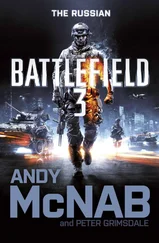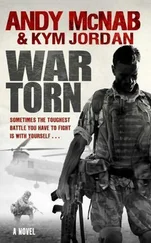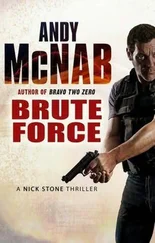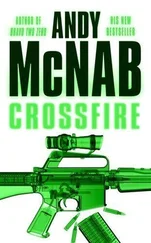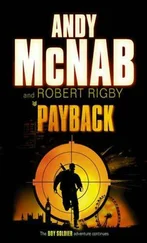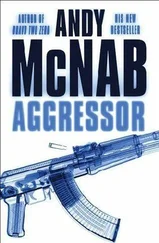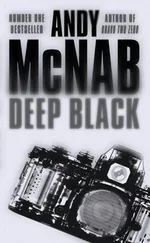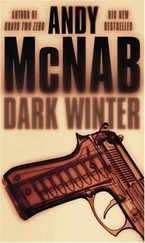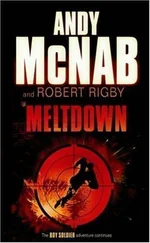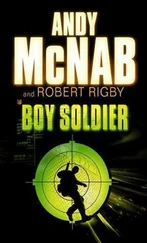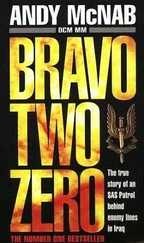‘Brin was not an engineer. He was an administrator, and he was KGB. He was responsible for the production of a large part of the programme. And by all accounts he was good at it. Russians build weapons differently from the way they are built in the West.
‘In the USSR we had bureaux, as we called them, places where the weapons were conceived, designed and prototyped. The bureaux were usually in Moscow or Leningrad and the production facilities were almost always in areas very far removed from the centre – places like Gorky.
‘Brin did such a brilliant administrative job at the production centre that he was transferred before long to the design bureau in Moscow. He was only thirty-eight and already a KGB colonel, and assigned to one of the most important defence projects in the USSR – a strategic missile system that, when built, would have had the power to wipe America off the map. It never came to that, thank God, because soon after he arrived in Moscow the Soviet Union ceased to exist and the Cold War ended.’
She looked into my eyes. ‘You have to imagine what it was like on that January morning – the day Russians returned to work after the country that they had known and sworn allegiance to for more than seventy years had effectively evaporated. For some, the phones stopped ringing, orders stopped coming in, and they simply went home. Brin was not one of them. With his friends in the KGB – soon to become the FSB – he was able to purchase stock in the company.
‘Within a very short space of time, he had complete control of it. Many Russians who worked in the defence industry thought that it would go into a terminal decline as the Cold War ended. Not Brin. With the liberalization of the Russian economy, he soon started to acquire other missile companies, some for next to nothing. By 2003, with the blessing of Putin’s government, he had built M3C into what it is today: a one-stop shop for anyone needing anything from the smallest handheld weapon to a nuclear missile. The nuclear variety were not on sale outside Russia, of course, but that never stopped Brin selling the technology within them to pariah states that had the money to pay – under-the-table deals that were allowed to proceed because they had the blessing of Putin and his cronies in the FSB.’
‘How did you get involved?’
‘Chechnya…’ She was lost to me again for a few seconds. ‘Chechnya was good for M3C. War has been good for M3C, full stop. The conflict saw the Russian government pour billions of roubles into weapon systems devoted to the systematic eradication of the Chechen people. I was in Chechnya as a reporter for Novaya Gazeta .’ She sighed. ‘At first, it was the humanitarian narrative that pulled me in. Later, I realized that the corruption that sustained it – fuelled it, in fact – was the story I was supposed to tell.’
‘What do you mean?’
‘Putin started the Chechen war. It suited his purposes to have a conflict on our doorstep – to get ordinary Russians focused on an external enemy, rather than the real enemy, the corruption that lies at the heart of Russia itself. Corruption in our country is a cancer, fostered by alliances between powerful figures in our government, oligarchs who control our economy and criminals – mafiosi . Having started it, Putin and his government needed to sustain the war in Chechnya.’
‘So why single out Brin?’
‘Chechnya made Brin a billionaire many times over and he, in turn, made sure that the people who were keeping the war going were also very well rewarded. I can’t get them all.’
‘This is the story you want to tell?’
‘It’s the story I’m compelled to tell. The trouble is, ordinary Russians are bored – they think they’ve heard it all before. They have become anaesthetized to scandal. But they haven’t heard this story – not by a long chalk…’
She smiled fleetingly. ‘I am lucky. My source told me about the Tehran meeting. The Cold War may have ended, but there is little affection in the upper echelons of the Russian government for the West. Nor, as you can imagine, do Russian defence companies care particularly about the fate of the average NATO soldier.’
I took a taste of muddy coffee and changed tack. ‘Is Brin normally involved in heroin?’
She smiled again, but bleakly this time. ‘Defence is a declining market. With George Bush gone and Barack Obama in power, the amount of money that the Americans are due to set aside for their defence and intelligence expenditure is declining dramatically. It is the same in Russia. Apart from anything else, few people in the grip of the current economic crisis can afford highly sophisticated weapons. The Russian government certainly can’t. It is raiding any budget it can to pay for the current debt crisis. And that isn’t going to change any time soon.
‘Brin is not a fool. Quite the opposite – he remains a driven, highly ambitious man. He needs to look for new sources of revenue, and yields do not come any bigger than those to be found in the opium and heroin market. The Taliban want highly sophisticated missiles? They pay for them with heroin – and Brin cements another part of his developing trade.
‘That is the picture that I went to Tehran to capture. I needed to see an employee of Brin dealing directly with the Taliban. I needed a photograph of the meeting that would make those responsible for that transaction completely transparent. The evidence would be published and it would lead to Brin. The story is ninety per cent written, I just need that picture. Then you can do whatever you have to do…’
Anna didn’t have quite as much of the story as she thought. She didn’t have the bit I had – and that bit was Altun. I suddenly saw a whole lot more – more, even, than I’d tumbled to in the past twenty-four hours. The only thing I didn’t understand was where Spag fitted in.
Did I care about Brin? He was Anna’s demon, not mine. My attention remained fixed on Altun and Spag – and it would stay there until I’d got payback for Red Ken and Dex. No – that wasn’t true. I wanted every fucker on the trail to get what was coming to them for what had happened in Dubai. Brin had just been added to the list.
‘Anna, why are you telling me all this?’
She looked at her watch and stubbed out her cigarette. ‘Because you need to understand.’
Moscow Sheremetyevo
1730 hrs
The seatbelts sign was still illuminated, but the engines were winding down. That was good enough for most of the locals. They were up and out of their seats as if the first to the exit got a free bottle of vodka.
Anna and I let the initial wave scramble for the door.
If I’d been able to speak the language, we’d have disembarked separately, but my Russian didn’t stretch any further than da , niet , spasibo and dasvidaniya , and that wasn’t going to get me to the bottom of the steps. I needed Anna. Only with her help could I remain the grey man.
She zipped her camera and laptop into her day-sack and looked out of the window. ‘In Moscow we have only two seasons, summer and winter. The snow has melted and the sun is out. It must be summer.’ She smiled, waiting. It must have been a joke.
All the same, it wasn’t going to be as hot as Tehran. I wished Tattoo’s jacket was a little thicker.
We eventually joined the scrum – I didn’t want us to be the last off. We reached the galley area, turned left and shuffled towards the door. I’d slung my day-sack over my shoulder. On the ramp there were three guys in fluorescent jackets – normal airport staff manning the air-bridge. No men in black leather waiting to push us back onto the plane until the real people had gone.
Читать дальше

